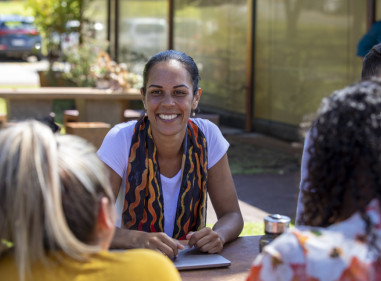
Planning & budgeting
Saving & investing
KiwiSaver
Tackling debt
Protecting wealth
Retirement
Home buying
Life events
Setting goals
Money tracking
Plan your spending with a budget
Getting advice
Studying
Get better with money
What pūtea beliefs do you have?
How to build up your emergency savings to cover unexpected costs
How to save your money
How to start investing
Find a financial adviser to help you invest
Your investment profile
Compound interest
Net worth
Types of investments
Term deposits
Bonds
Investment funds
Shares
Property investment
How KiwiSaver works and why it's worth joining
How to pick the right KiwiSaver fund
Make the most of KiwiSaver and grow your balance
How KiwiSaver can help you get into your first home
Applying for a KiwiSaver hardship withdrawal
How to use buy now pay later
What you really need to know before you use credit
How to get out of debt quickly
Credit reports
Know your rights
Pros and cons of debt consolidation
Credit cards
Car loans
Personal loans
Hire purchase
Student loans
Getting a fine
What happens if I start to struggle with moni?
How to protect yourself from fraud and being scammed
About insurance
Insurance types
Insuring ourselves
Wills
Enduring powers of attorney
Family trusts
Insuring our homes
Losing a partner
Redundancy
Serious diagnosis
How to cope with the aftermath of fraud
Separation
About NZ Super – how much is it?
When you’re thinking of living in a retirement village
How to plan, save and invest for retirement
Manage your money in retirement
Find housing options in retirement
Four approaches to spending in retirement
Planning & budgeting
Saving & investing
How to build up your emergency savings to cover unexpected costs
How to save your money
How to start investing
Find a financial adviser to help you invest
Your investment profile
Compound interest
Net worth
Types of investments
Term deposits
Bonds
Investment funds
Shares
Property investment
View all
KiwiSaver
Tackling debt
How to use buy now pay later
What you really need to know before you use credit
How to get out of debt quickly
Credit reports
Know your rights
Pros and cons of debt consolidation
Credit cards
Car loans
Personal loans
Hire purchase
Student loans
Getting a fine
What happens if I start to struggle with moni?
View all
Protecting wealth
Retirement
Home buying
Reading time: 4 minutes

Many organisations and government agencies are here to provide help in the form of services or information.
If you're ever concerned by the spiralling cost of your debt, or if you've bought a faulty product or even something you didn't really want in the first place, know that there may be options available.
Understanding your rights as a consumer and as an investor can make a big difference should things go pear-shaped. Especially when it comes to the costs that debt brings, faulty goods or not-good-enough services, this becomes even more important.
Here are some places to seek help, understand your rights, make a complaint or find a solution to your situation.
MoneyTalks is a free helpline available to provide free budgeting advice to individuals, family and whānau.
Their financial mentors can:
Their free helpline is 0800 345 123, and you can also text 4029 or email them at help@moneytalks.co.nz.
It is important that as a consumer, you know your rights. Whether you are buying goods or services in a shop, online, over the phone, or signing up to a consumer loan, you have rights.
The Commerce Commision have helpful resources – find out about your rights as a consumer.
Consumer Protection provides a range of information and advice on the process of buying: what to know and do before, during and after purchasing a product or service.
Dispute resolution services are available if you are concerned about the actions of a financial services provider that you are a customer of. All providers belong to one of these approved independent dispute resolution schemes:
The Financial Markets Authority (FMA) can help you with queries, concerns or complaints about investment products like KiwiSaver, financial advisers or share-trading activity. They also have a variety of guides specifically for investors and consumers.
Citizens Advice Bureau helps people to know and understand their rights and obligations and how to use this information to get the best outcomes. They provide people with the confidence and support they need to take action, and work for positive social change within communities and wider society. It is a a free and independent service to all.
Community Law provides access to free legal help. This can be useful if you want to understand your rights and how you could make a complaint or find a solution to your situation.
Consumer NZ is an independent, non-profit organisation dedicated to getting New Zealanders fairer deals and offers a range of helpful information and advice.
Utilities Disputes resolves complaints about power, gas, water and broadband on shared property.
Guide
Credit cards are an easy way to pay for things with a quick swipe or tap, but they can be…

Guide
We’re getting identified more and more by our credit reports these days. When businesses decide whether to lend us money,…

Guide
‘Consolidating’ debt means taking out a new loan to wrap all our existing debts together and pay them off at…

Guide
Most vehicles – unless they’re classic cars – quickly go down in value, not up. So borrowing to buy a…

Guide
Borrowing to study can be a great opportunity, although it’s important not to borrow more than we need.

Guide
Debt comes in many forms – credit cards, hire purchase, car loans, personal loans, mortgages, student loans. There's no shortage…

Guide
Buy now pay later can be a helpful way to spread out the cost of something over time with no…

Guide
The longer we take to pay off debt, the more it costs us. So if there’s room in the budget,…

Guide
People use personal loans to pay for all kinds of things – weddings, renovations, holidays or consolidating their debts. They’re…

Guide
No-one likes fines, but the quicker we pay them the better off we’ll be. Unpaid fines can end up costing…

Use verification code from your authenticator app. How to use authenticator apps.
Code is invalid. Please try again
Don't have an account? Sign up
Or log in with our social media platforms


A free account gives you your very own space where you can save your tools and track your progress as you get ahead.
Or sign up using Google:


